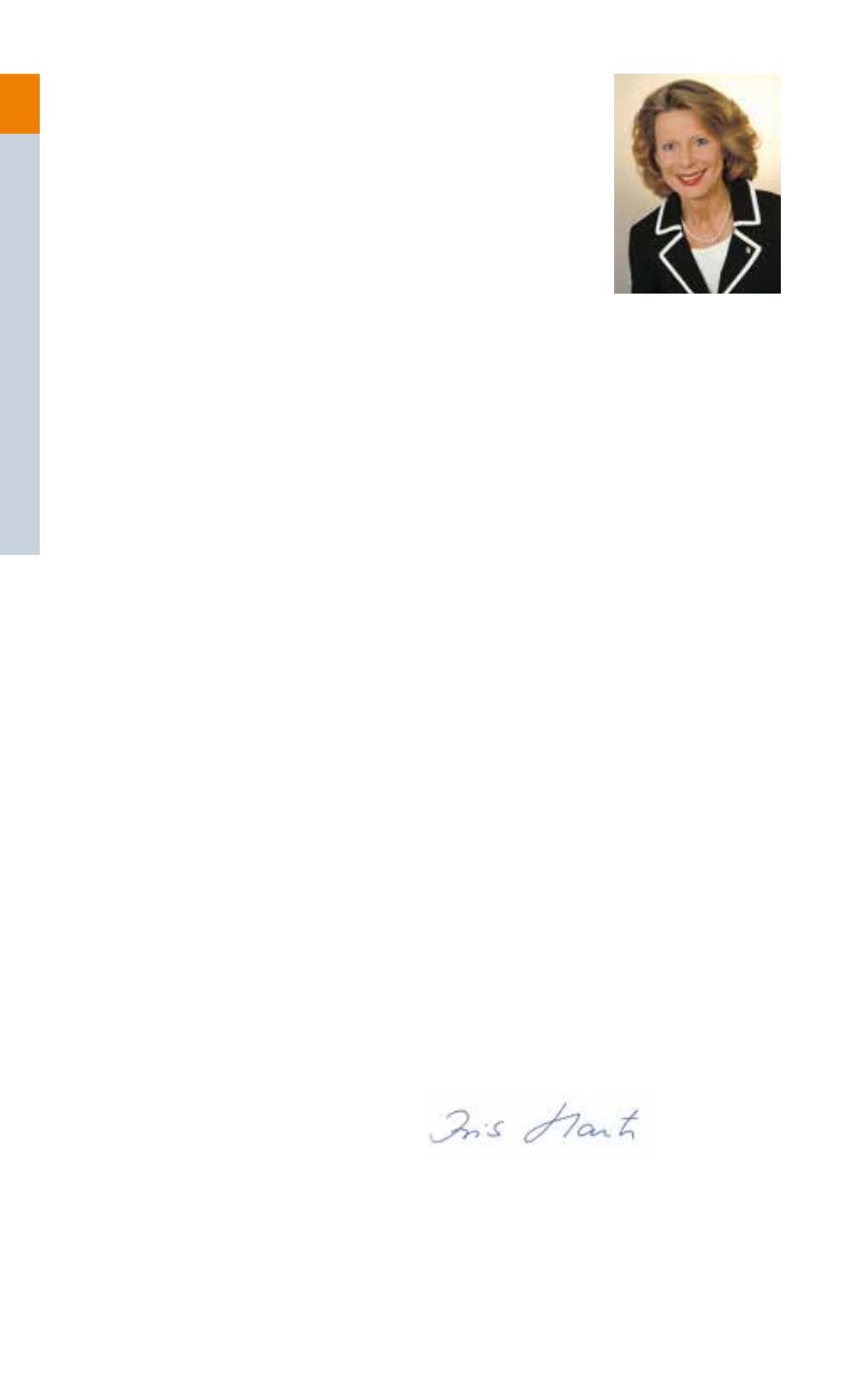

266
WELCOME ADDRESS
WELCOME
ADDRESS
Dear colleagues,
It is my great pleasure to welcome you on
behalf of the German Association for Psychia-
try, Psychotherapy and Psychosomatics to the
DGPPN Congress 2015.
Mental disorders are one of the most import-
ant health problems in Germany, as can be
seen simply by looking at the reasons for sick
leave and early retirement. The need for help
and the demand for diagnostics and treatment
have increased in both out- and inpatient set-
tings. In light of this situation, care provid-
ers see themselves confronted with major
challenges: how can we ensure that mentally
ill people receive high quality, scientifically
based and individualised medical, therapeutic
and social help? This question is at the heart
of the DGPPN Congress 2015, as reflected in
its motto “Focusing on the person: Rethinking
care”.
Again this year the congress will address all
the relevant mental disorders and will place
a lot of emphasis on biological, psychothera-
peutic and social psychiatric topics. National
and international experts will provide us with
insight into the current status of research and
will show us forward-looking perspectives.
Furthermore, the DGPPN Congress 2015 will
also address societal and health policy de-
velopments. In addition to the now firmly
established English language track, this year
will see for the first time a separate focus for
general practitioners. By introducing this fo-
cus, the DGPPN wants to create a platform for
exchange between specialities.
State Secretary Lutz Stroppe from the Federal
Ministry of Health will be attending the main
congress opening ceremony. The medical eth-
icist Giovanni Maio will talk about how the
industrialisation of psychiatry is following the
wrong paradigm. The cultural framework will
be provided by the Bavarian Doctors Orches-
tra and their rendition of the Paris Symphony
KV 297 by Wolfgang Amadeus Mozart.
Besides these events, the congress programme
offers many more highlights. For example, the
former president of the American Psychiatric
Association (APA) Jeffrey A. Lieberman will be
giving a presentation on pathogenetic mech-
anisms in early psychoses. Sir Simon Wesse-
ly, who is known among other things for his
research on the Gulf War Syndrome, will be
talking about how to avoid making negative
developments even worse. The renowned
researcher Ruth Feldman from Israel will be
talking about aspects of the cross-generational
transfer of psychopathology and resilience.
I am sure that you have already compiled your
own personal congress programme. We wish
you interesting, insightful days at the congress
and a productive exchange with colleagues.
On behalf of the Executive and Programme
Committees,
Dr. med. Iris Hauth, Berlin (Germany)
President of the German Association for Psy-
chiatry, Psychotherapy and Psychosomatics
(DGPPN)



















